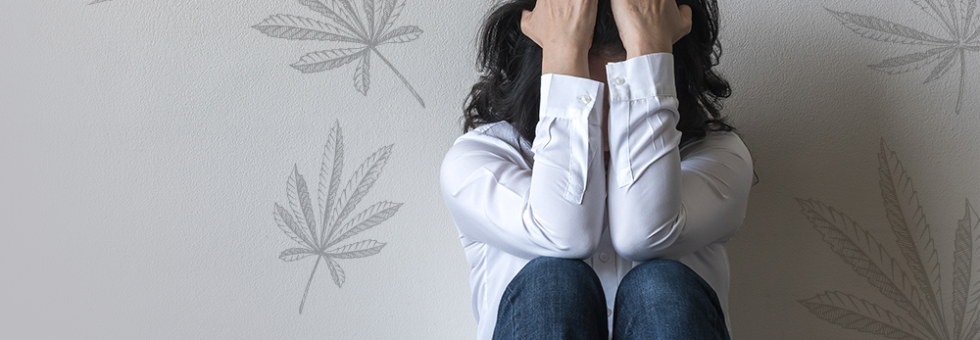Anxiety and depression are some of the most common symptoms of the most common disorders in America, yet many feel they suffer alone. Anxiety and depression are moods, symptoms, or the name for a type of disorder, not necessarily disorders in and of themselves. From cancer and chronic pain patients, those suffering a range of long-term disorders, stress, or pain can often check the box of depression or anxiety as a disruptive symptom of their disorder.
Anxiety is often marked by symptoms such as increased alertness, racing heart, and sweating palms. Depression is generally marked by a low positive affect, lethargy, and less enjoyment in daily life. Both depression and anxiety can be expressed as restlessness, fatigue, sleep disturbance, and irritability.
Biochemically, stress begets stress. An over-sensitive stress response system is a common trauma response. Chronic stressors create stress-sensitive symptoms. In this way, anxiety and depression are “two sides of a similar reaction to stress, in terms of both thought processes and hormones,” says Brit Garner of SciShow Psych.
Both conditions can be looked at through the lens of the fight-or-flight response, acutely or over time. When the body perceives a threat, it prepares to fight, run, or freeze. Chronic anxiety could be triggered by helplessness and depression as hopelessness in response to threatening stimuli. The anxiety is the running and fighting; depression is the freeze response. These responses create disorder in our lives when we struggle to overcome these cycles of anxiety and depression.
In western medicine, antidepressants are usually the first line of defense against both depression and anxiety. Physiologically, the depressed or anxious brain will exhibit lower levels of serotonin and norepinephrine. SSRIs positively affect serotonin and may provide relief. As far as medical cannabis intervention goes, healthcare leaders seem split, with some saying that cannabis use can worsen depression or anxiety, while others say it can improve it.
“Oftentimes, depression is part of this bigger picture and sometimes depression is the final common endpoint for things that have gone wrong in the brain and the body and really the brain is in this withdraw and protect mode.” Although EEG studies show underactive left frontal lobe in depressed brains, “we want to wake the brain back up and help people interact with their world in a better way. This is where cannabis medicine can come in handy.” CBD and THC can help regulate sleep dysfunction in people with depression and anxiety. A rested brain and body are better able to combat depression and anxiety and can improve motivation and energy levels during the day.
Depression affects up to 7% of Americans at least once in their lifetimes and anxiety as many as 18%. Almost 1 in 5 people are experiencing depression and anxiety chronically enough to disorder their lives. Cannabis is a potentially effective treatment tool. Increased equitable access to medical cannabis for anxiety and depression treatment will bring clarity for specific cannabis interventions.
Sources:
Why Do Anxiety And Depression Go Together?; SciShow Psych, 2019: https://youtu.be/xdAjGRvxGPMCBD, Cannabis, and Depression by Dr. Dani Gordon, MD https://youtu.be/DCk4Dy_Joc8

